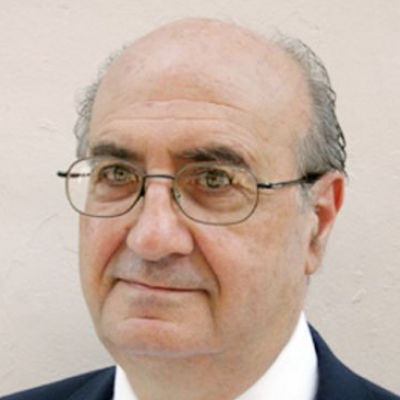Soap Operas as Teaching Tools
Using television to spread public health messages.
June 11, 2016
Spreading knowledge about global health issues, as important as it is, is a notoriously fickle matter. The complexity of medical science does not always mesh easily with garnering ready public attention. But if the mountain won’t come to you, you must go to the mountain.
So it should come as no surprise that soap operas, or telenovelas, are increasingly being used throughout the world to disseminate messages about health issues.
Topics include the need for contraception, domestic violence, HIV/AIDS, nutrition, how to achieve peace between countries in conflict and how to elevate the status of women in developing countries.
Serialized soap operas are particularly good vehicles for the message. By identifying themselves with the protagonists’ aspirations and struggles, the viewer establishes an immediate emotional connection with them that persists.
H. Wesley Kenney, when he was a producer on General Hospital, the iconic soap, once described the appeal as follows:
“I think people like stories that continue so they can relate to these people. They become like a family, and the viewer becomes emotionally involved. There seem to be two attitudes by viewers. One, that the stories are similar to what happened to them in real life, or two, thank goodness that isn’t me.”
Colorado and children’s health insurance
In the U.S. state of Colorado, state officials developed a Spanish-langauge telenovela called “Crossroads: Without Health, There Is Nothing,” specifically aimed at conveying health messages to the Hispanic population.
One of the producers’ aims was to increase the number of health-insured kids in the state. Almost half of the 150,000 uninsured children in Colorado were eligible either for Medicaid or the Child Health Plan Plus program.
Following the airing of the telenovelas, there was a substantial increase in the number of children applying for insurance.
Julieta Ortiz, who plays one of the main characters in that telenovela says, “We’re trying to get people to get related with this character and then feel, it’s such a shame that we lost her just because she didn’t know in time what to do […] she could have saved her life.”
African AIDS education
In Niger, the state television station and UNICEF have joined forces to produce a serial drama entitled “Soueba” which focuses on the lives of young people in Niamey, Niger’s capital. Following their journey into adulthood, the program explores the realities of love and sex and the dangers posed by the HIV/AIDS epidemic.
“‘Soueba’ is more than entertainment. Our aim with ‘Soueba’ is to stop the taboo around HIV/AIDS, decrease the stigma of people living with the disease, encourage positive attitudes and improve prevention behaviors,” declared the director of the program, Mahaman Souleymane.
In Ethiopia, the characters in the radio drama “Yeken Kignit” (“Looking over one’s daily life”) have kept millions of Ethiopians glued to their radios for two and a half years. In the process, they may also have changed their lives.
Men who followed “Yeken Kignit” and a similar program called “Dhimbibba” (“Getting the best out of life”) sought to be tested for HIV at four times the rate of non-listeners. The demand for contraceptives rose 52 percent among married women who listened to the programs.
Latin American violence prevention
In Nicaragua, PATH, an international nonprofit organization based in Seattle, working with a Nicaraguan non-profit group called Puntos de Encuentro (Meeting Points), has inserted health-related messages into one of the country’s most popular soap operas.
The aim of those messages is to change some cultural assumptions that lead to domestic violence and sexual abuse among adolescent girls and young women.
The potential reach of such programs cannot be overstated. Latin American countries such as Argentina, Mexico and Venezuela (as well as Portuguese-speaking Brazil nearby) have become active exporters of telenovelas.
These are eagerly watched in countries as far away from Latin America as Russia, Albania, Romania, China and several countries from the former Soviet Union.
Branching out in a global market
Some telenovelas that have focused on health issues such as cancer and leukemia have also looked at the amount of people who are donating and registering to donate bone marrow. After the program aired, donors went up from single digits to hundreds of people.
In Vietnam, the Ministry of Agriculture and several partners used education concepts to communicate pest management and environmental protection techniques to rice farmers. The project won several awards for its effectiveness in communicating farm science to people.
Depression and its consequences is little known or understood in parts of East Africa. A radio soap opera was created, with scripts authored by local writers and teenagers, which deals with the stresses faced by young people.
The show was aired in Malawi and Tanzania – which have particularly young populations – and increased young people’s awareness of this problem and what to do to solve it.
Regardless of the specific issues or countries involved, increasingly, telenovelas have proven their worth in conveying health messages. They have become an important tool to improve people’s health worldwide.
Takeaways
Telenovelas are increasingly being used throughout the world to disseminate public health messages.
In Colorado, health officials developed a telenovela, “Crossroads: Without Health, There Is Nothing.”
In Niger, state TV & UNICEF produced a soap opera about young people and HIV.
Nonprofits put public health messages into popular Latin American soap operas with global reach.
